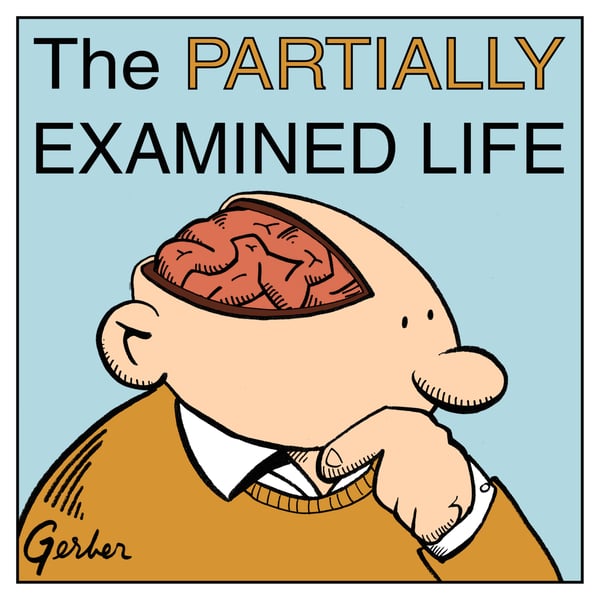Ep. 371: Christine Korsgaard on Normativity (Part One)
The Partially Examined Life Philosophy Podcast
Mark Linsenmayer
4.6 • 2.3K Ratings
🗓️ 14 July 2025
⏱️ 48 minutes
🧾️ Download transcript
Summary
On lectures 3 and 4 of The Sources of Normativity (1996), where we get Korsgaard's positive view on how morality becomes obligatory for an individual, which has to do with identity, reason-giving, and our fundamentally social nature. And yet, her view is an interpretation of Kant!
Get more at partiallyexaminedlife.com. Visit partiallyexaminedlife.com/support to get ad-free episodes and tons of bonus discussion.
Sponsors: Don't wait until the next bite—protect your home with Bzigo. Go to bzigo.com/discount/BUZZ10 to save 10%. Visit functionhealth.com/PEL to get the data you need to take action for your health.
Learn about Mark's online political philosophy class at partiallyexaminedlife.com/class.
Transcript
Click on a timestamp to play from that location
| 0:00.0 | This fall, I will be teaching a new online class, |
| 0:03.0 | foundational texts in political philosophy. |
| 0:05.5 | Learn more about it and express your interest |
| 0:07.5 | at partially examinedlife.com slash class. |
| 0:15.0 | You're listening to the partially examined life, |
| 0:20.5 | a podcast by some guys who at one point set on doing philosophy for a living, but then thought better of it. |
| 0:25.4 | A question for episode 371 is something like, how are we subject to moral obligations? |
| 0:31.4 | We're continuing to discuss Christine Coorsguards, the sources of normativity, now moving to her positive view in lectures three |
| 0:38.7 | and four. |
| 0:39.7 | The lectures were delivered in 1992, published in 1996. |
| 0:44.0 | This is Mark Lintonmeyer, taken two to make a reason in Madison, Wisconsin. |
| 0:48.5 | This is Seth Paskin, intrinsically and not extrinsically motivated in Austin, Texas. |
| 1:00.0 | This is Wes Alwyn trying to figure out which of my impulses count as reasons in Cambridge, Massachusetts. This is Dylan Casey just trying to make sense of the noise in Madison, Wisconsin. |
| 1:04.0 | All right, so we get the neo... |
| 1:07.0 | Well, she attacks someone as a neocontian, so she's not a neocontian, but she says she's giving |
| 1:14.6 | something she had described in the previous chapters that the outcome of this reflective |
| 1:20.7 | endorsement view ends up being something like Kantianism, where you are your own authority. And she actually even says that |
| 1:29.0 | the very first set of views that she considered the volunteerists like Hobbes that say, |
| 1:33.8 | we only have obligations because there is a boss that commands things of us, that that's |
| 1:39.0 | actually in some way correct. It's just that you are the boss. Your deliberating self is the boss of your acting self. And it's a |
| 1:47.4 | legitimate authority. It can put sanctions on you, can make you feel guilty. And so, yeah, that's |
| 1:53.0 | the way it works. And there's, even though it's just me doing it to myself, there's still because we're |
... |
Please login to see the full transcript.
Disclaimer: The podcast and artwork embedded on this page are from Mark Linsenmayer, and are the property of its owner and not affiliated with or endorsed by Tapesearch.
Generated transcripts are the property of Mark Linsenmayer and are distributed freely under the Fair Use doctrine. Transcripts generated by Tapesearch are not guaranteed to be accurate.
Copyright © Tapesearch 2025.

